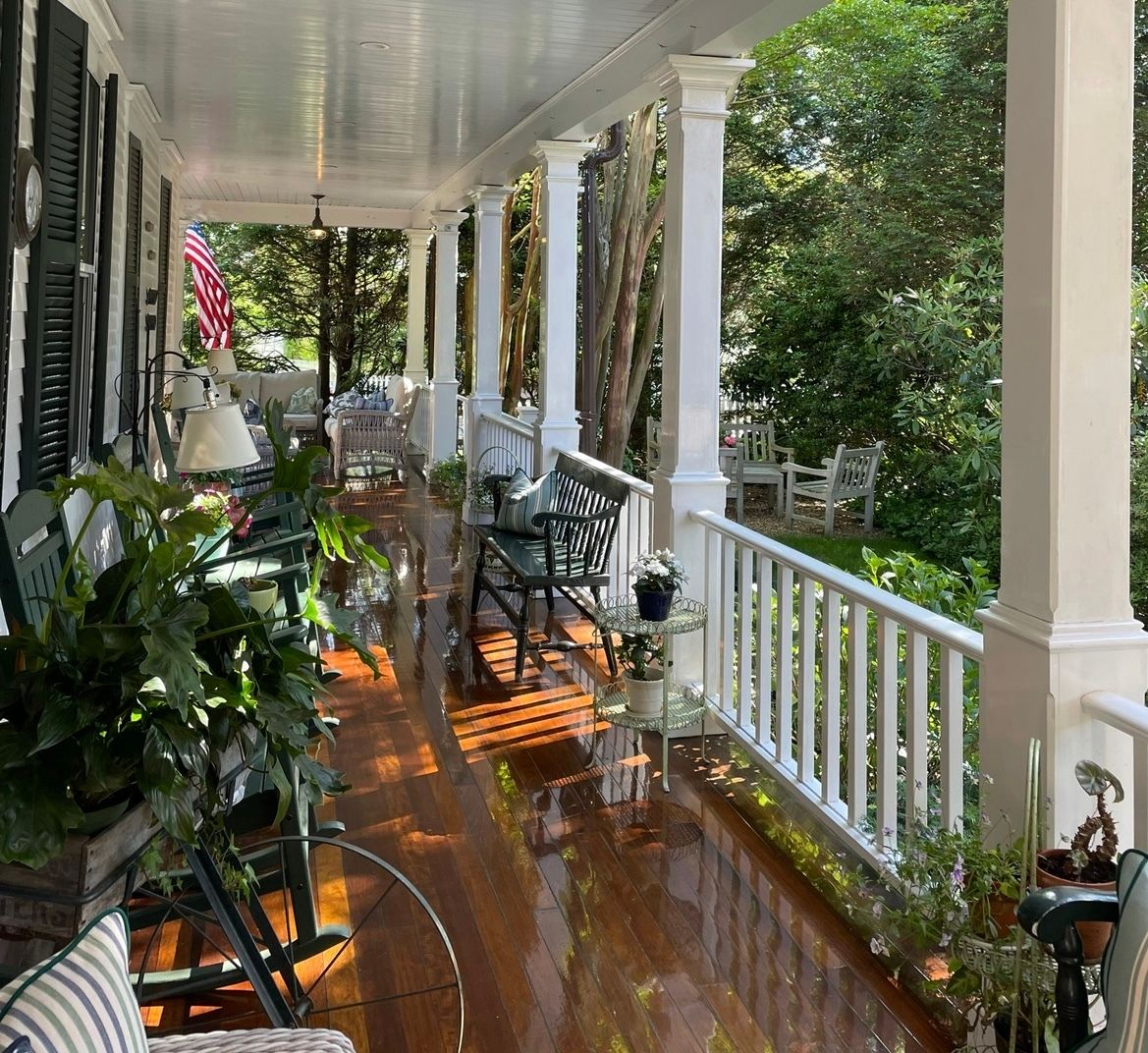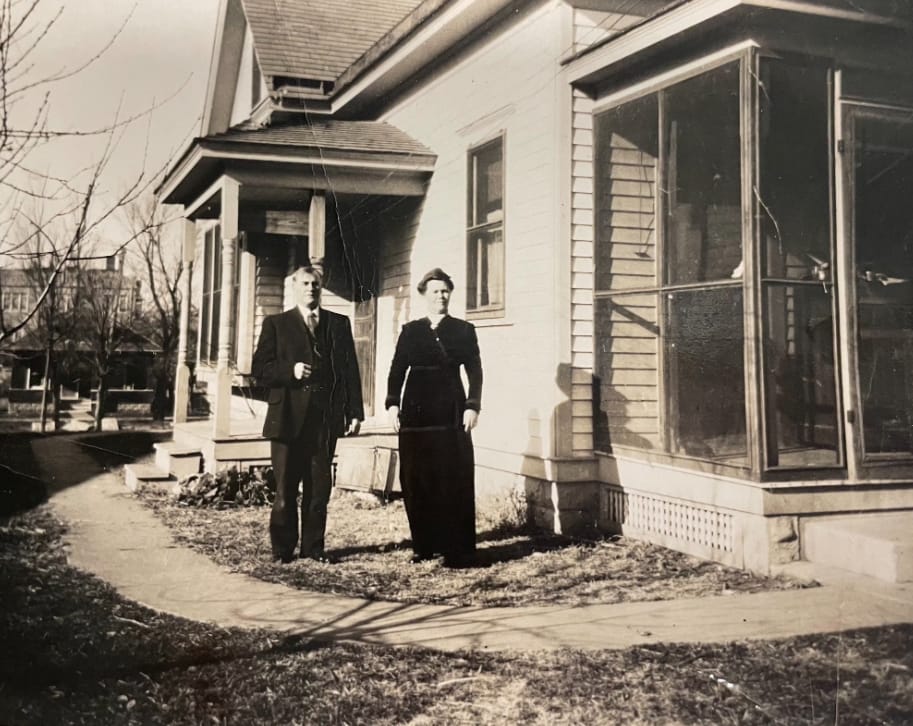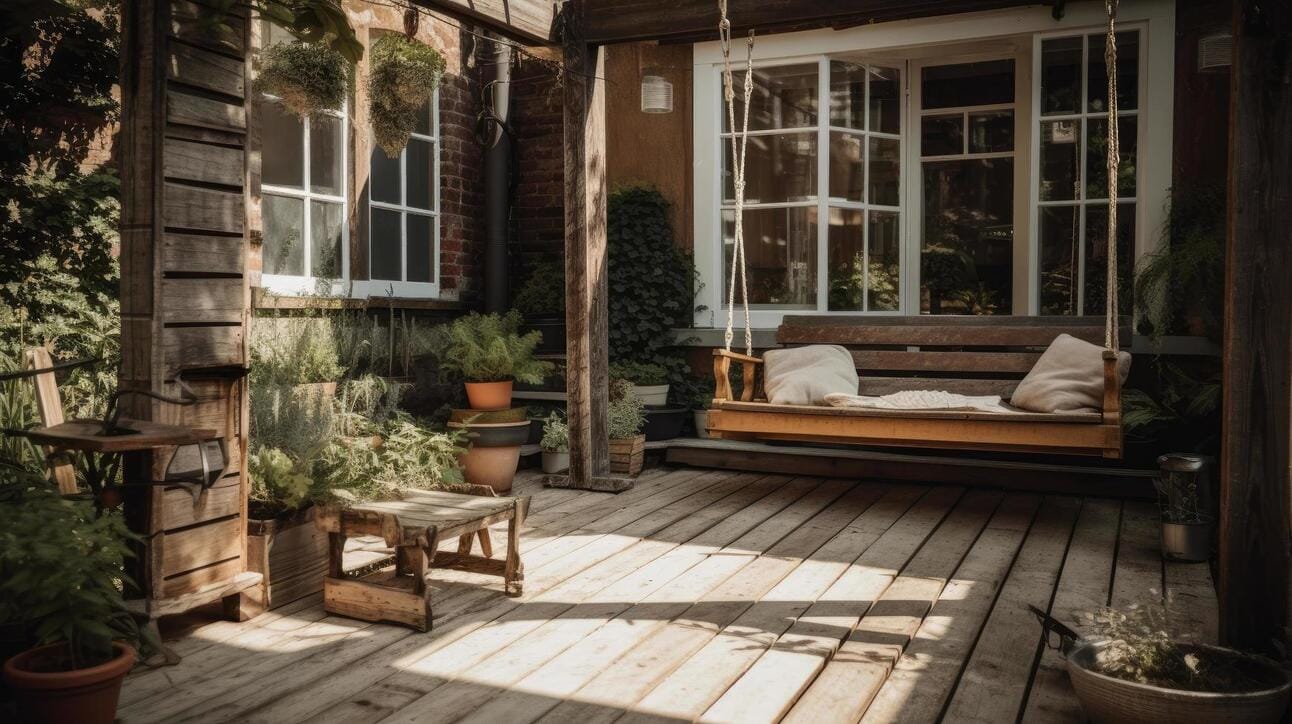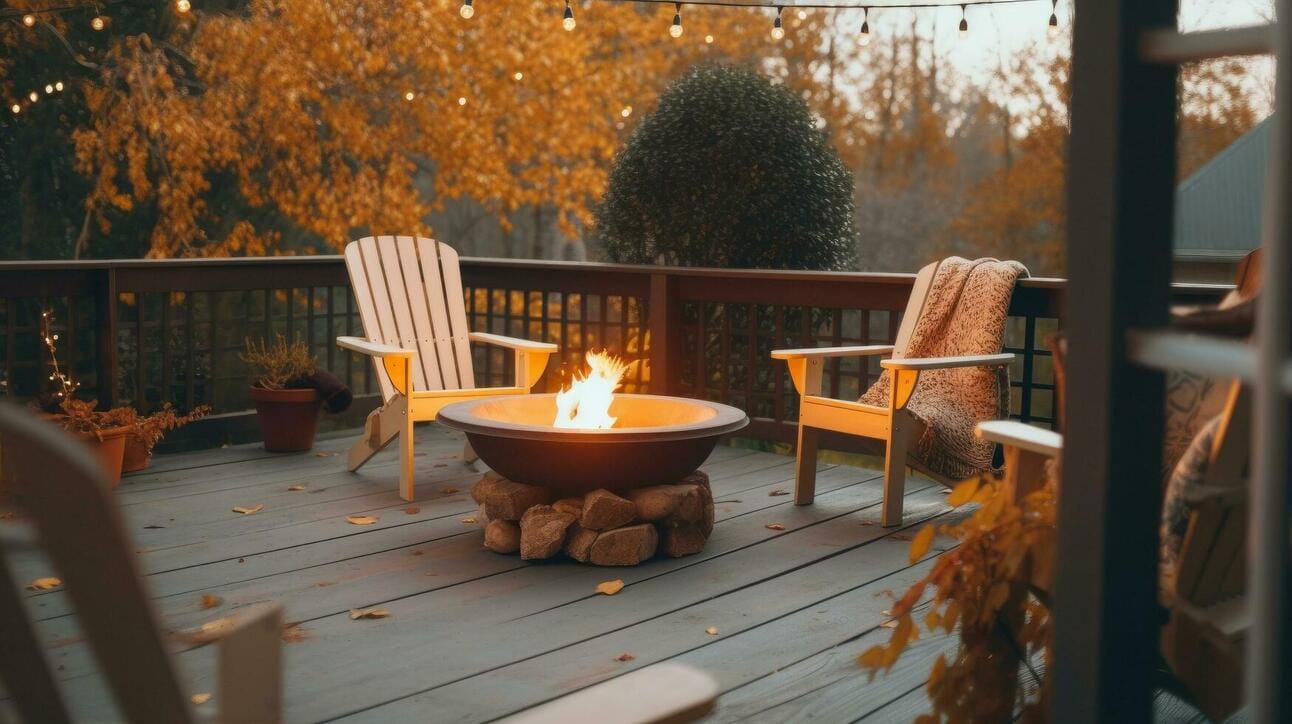We are in a strange time in history. For the first time ever, we have the ability to have everything, everywhere all at once. Our smartphones allow us the ability to access the world, but to do so while never speaking to another human. Despite all this connected technology we’ve become more isolated and polarized than ever. So, how did this happen?
The answer has a lot to do with architecture. Yup, architecture. Let me explain.
A Brief History Lesson
You can trace this trend back to the early 1900s. See, back in those days, there was no electricity. That meant no air conditioning. The only way to cool off was to sit outside, typically on a front porch. The porch was shaded and cool in warmer weather and protected from the elements in harsher conditions.

The porch offered a buffer between the private and public domain, allowing people to interact with their neighbors. Families who weren’t “porching” (yes, that’s a verb) strolled the neighborhood in the evenings.
As Richard H. Thomas points out in his iconic and timeless 1975 essay, “From Porch to Patio,” the front porch was the epicenter of the home. The porch allowed for less privacy, but it encouraged communal gathering with neighbors.
The Precursor to Facebook
The porch was a place to observe the comings and goings of the neighborhood. You could catch up on the latest neighborhood intel—things like who was pregnant, who was engaged, or who had a new job. Yes, in many ways, the front porch was the precursor to Facebook and Twitter. The front porch facilitated a sense of belonging, of community.
First time reading? Subscribe for free here.
People knew your business because you lived your life in the open. Nobody hid behind a screen. We could see the good along with the bad.

Bumpin’ in the ‘Burbs
However, as technology evolved, homes were fitted with electricity. People migrated from metropolitan areas to “planned communities” in the suburbs.
The suburbs presented low-cost alternatives to crowded, in-town living. People traded a sense of community in the city for the anonymity of the ‘burbs, and the neighborhood turnover was high.
Business in the Front—Party in the Back
At the same time, modern home architecture moved the front porch to the backyard. Most backyard patios included fences and walls to provide privacy from the peering eyes of pesky neighbors. One might argue that the backyard patio killed communal living and relationships, and they’d be right.
The Breakdown
So, what does all this have to do with our current isolation and polarization? Well, once we retreated from the front porch to the backyard patio, it signaled a breakdown of the neighborhood.
Watchful Eyes
Remember years ago when the simple sound of the doorbell brought a thundering herd to the front door? It was as if Jesus Christ himself had chosen your house for the second coming.
People often came with gifts of baked goods. The Fuller Brush man gave free combs. The Charlie’s Chips man gave away potato chip samples. Even the Mathis Dairy milkman occasionally gave away chocolate milk. It was glorious.

In 2024, the front yard is no longer governed by the watchful eyes on the porch. Today, that surveillance has been transferred to the electronic eyes of the Ring Camera and doorbell. That doorbell now insulates us from all sorts of interlopers.
The doorbell of today brings instant panic and alarm. Everyone freezes, and someone asks, “Was that the doorbell?” The typical answer today: “It can’t be the doorbell, we aren’t expecting anyone.” Nobody wants to brave the uncharted waters to the front door. Everyone has the same thought, “Maybe they’ll just go away.”
This comedian absolutely nails it.
How times have changed. The doorbell is simply a metaphor for how we live our lives. We live behind closed doors, insulated from the outside world by layers and layers of technology. We barely know our neighbors.
”Who Are the People in Your Neighborhood?” (Mr. Rogers)
Last month marked the 57th anniversary of the first airing of the children’s television show, Mr. Rogers Neighborhood. You may recall that Fred Rogers encouraged each of us with songs like “Who Are the People in Your neighborhood?” and ended each show with “Would You Be My Neighbor?”

A 2018 survey by the Pew Research Center found that only 25% of Americans knew most of their neighbors. A similar number of Americans were unable to provide any specific information about their neighbors.
I recently met my neighbors across the street. Their first question was, “how long have you lived on the street?” I think we were both embarrassed when I said nine years. Mr. Rogers would have been so disappointed in us. He knew everyone in his neighborhood.
The byproduct of all this privacy is the loss of community. We hunker down in our foxholes. We stopped trying to love thy neighbor.
The Big Finish
So, let’s recap what we’ve learned here. First, in earlier times, the porch was the epicenter of the home. People used the porch as a way to commune with neighbors. Second, people lived their lives in the open. Nobody hid behind a screen. Third, people migrated from metropolitan areas to “planned communities” in the suburbs. They traded a sense of community for the privacy and anonymity of the ‘burbs. Fourth, cheap suburban architecture introduced the cookie-cutter, pre-fab home without a front porch. Private patios were moved to the backyard for privacy. Fifth, people stopped communing with one another. The privacy we craved prevented us from knowing (or loving) our neighbor.

Lastly, new technology like Ring Doorbell and cameras further insulated us from one another. Yes, our old friend Mr. Rogers is rolling over in his grave.
I’m a team of one. I write only for the joy of writing. I rely on referrals to grow my audience. If you know someone who'd enjoy Wit & Wisdom, forward this article and they can sign up here.
So, do you feel more isolated and insulated today? What caused it for you? I want to know. Please click the button below to leave a comment. I read and respond to all of them.




